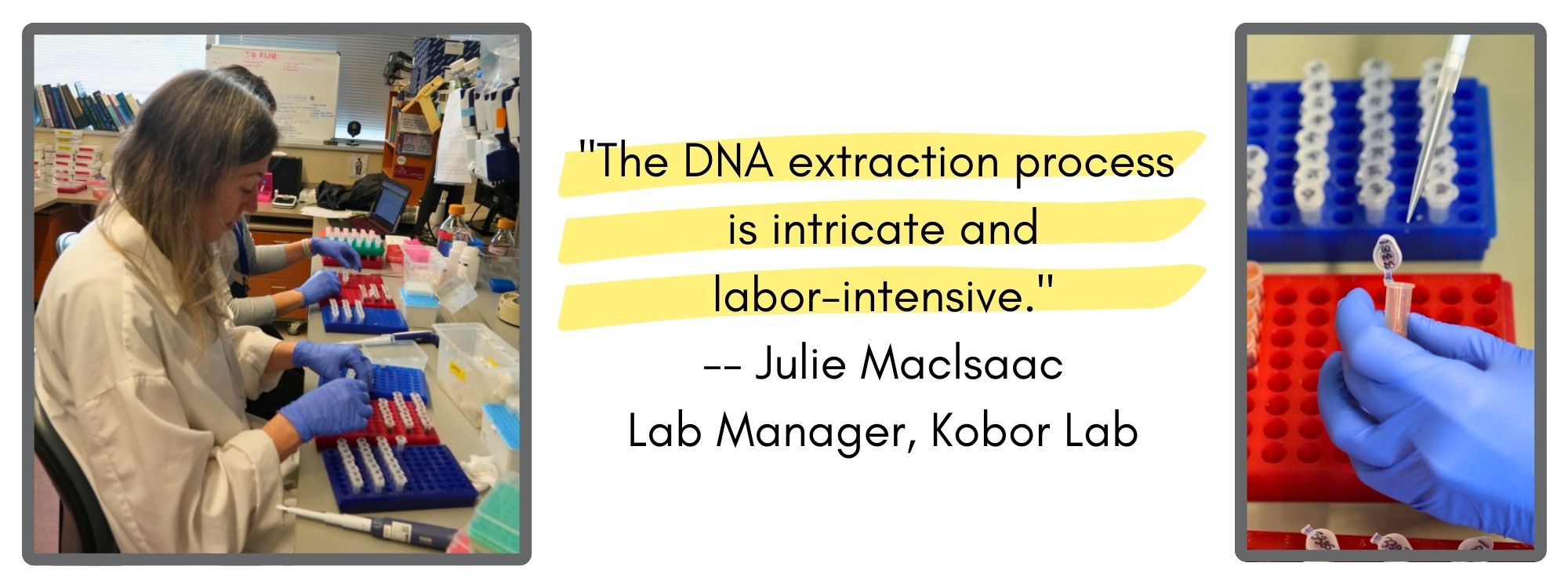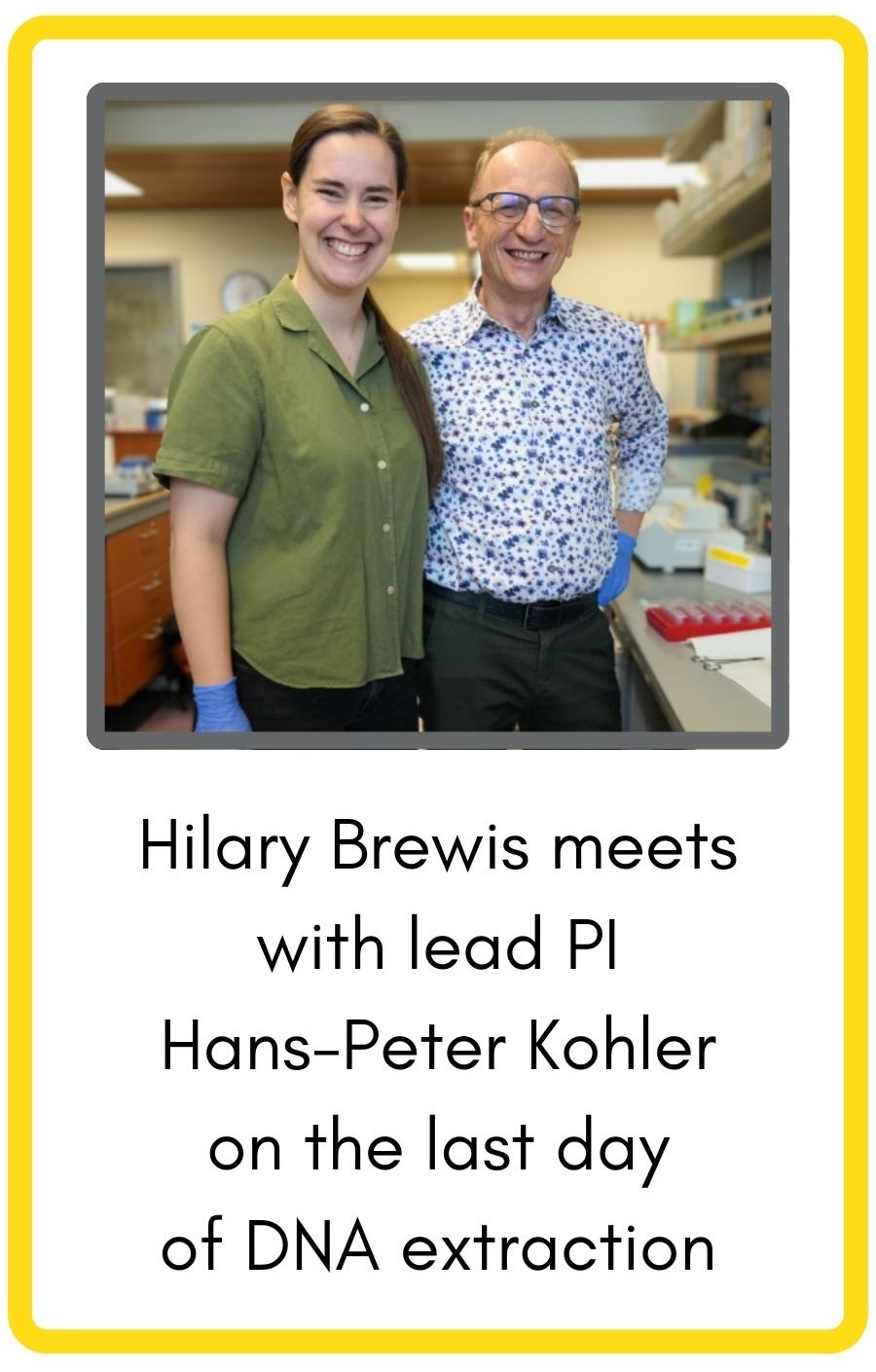This past summer, the research team from the Malawi Longitudinal Study of Families and Health (MLSFH) completed the first part of data collection for the NIA-funded MLSFH Adversity, Aging and ADRD Risk project. This study supplements a quarter-century of social and contextual MLSFH data with additional longitudinal measures of cognition and genomic and epigenomic data. The aim of the study is to investigate critical factors contributing to accelerated aging in low-income populations with extensive life course adversities and analyze the relationship between epigenetic biomarkers and cognitive function. Collected data will help evaluate the biosocial determinants of ADRD risk in low-income countries like Malawi.
In 2024, The MLSFH research team collected approximately 3,500 Dried Blood Spots (DBS) from MLSFH participants aged 45 and older. It shipped the samples to Kobor Lab at the University of British Columbia (UBC) for DNA extraction and DNA methylation profiling.

"The DNA extraction process is intricate and labor-intensive," states Julie Maclsaac, a Lab Manager at Kobor Lab. "Each card submitted must be meticulously cut by hand to ensure no part of the sample is lost.” The lab is one of only a few in the world currently able to process DNA for analysis using DBS collection. While DNA extraction from the MLSFH samples was completed in February, further analyses will continue through 2025, with DNA methylation profiling data from all 3,500 samples expected in late 2025.
 Hans-Peter Kohler, one of the principal investigators of the MLSFH, traveled to Vancouver to observe the process firsthand. "I got to witness the last day of the DNA extraction from our 2024 DBS. The first step is to get from DBS to DNA, then ultimately to CpG, long lists of A, T, G, and C, and then to epigenetic clocks and genetic markers," said Kohler during his visit.
Hans-Peter Kohler, one of the principal investigators of the MLSFH, traveled to Vancouver to observe the process firsthand. "I got to witness the last day of the DNA extraction from our 2024 DBS. The first step is to get from DBS to DNA, then ultimately to CpG, long lists of A, T, G, and C, and then to epigenetic clocks and genetic markers," said Kohler during his visit.
The collaboration with the Kobor Lab at UBC is important for the MLSFH and Penn's Population Aging Research Center (PARC) because it complements the existing strengths of the MLSFH and PARC teams with expertise in genetics and epigenetics, facilitating the pursuit of a biosocial research agenda. Integrating social and biomedical sciences will help foster a better understanding of aging and ADRD in poor populations.
The MLSFH team plans to return to the field in 2025 to collect cognitive assessments and additional socioeconomic data from the same population. This ongoing collaboration highlights the power of international teamwork in advancing scientific knowledge while improving research in the aging field across the globe.
Authored by Allison Wright, MLSFH Senior Research Coordinator